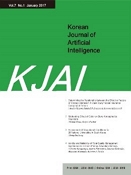- 권한신청
- E-ISSN2508-7894
- KCI
Trends of Artificial Intelligence Product Certification Programs
Joon Ho KWAK (AI Trustworthiness Verification Team, TTA)
KyoungWoo CHO (AI Trustworthiness Verification Team, TTA)
JaeYoung HWANG (AI Trustworthiness Verification Team, TTA)
Sung-Min WOO (School of Electrical, Electronics and Communication Engineering, KOREATECH)
Abstract
With recent advancements in artificial intelligence (AI) technology, more products based on AI are being launched and used. However, using AI safely requires an awareness of the potential risks it can pose. These concerns must be evaluated by experts and users must be informed of the results. In response to this need, many countries have implemented certification programs for products based on AI. In this study, we analyze several trends and differences in AI product certification programs across several countries and emphasize the importance of such programs in ensuring the safety and trustworthiness of products that include AI. To this end, we examine four international AI product certification programs and suggest methods for improving and promoting these programs. The certification programs target AI products produced for specific purposes such as autonomous intelligence systems and facial recognition technology, or extend a conventional software quality certification based on the ISO/IEC 25000 standard. The results of our analysis show that companies aim to strategically differentiate their products in the market by ensuring the quality and trustworthiness of AI technologies. Additionally, we propose methods to improve and promote the certification programs based on the results. These findings provide new knowledge and insights that contribute to the development of AI-based product certification programs.
- keywords
- AI, Artificial Intelligence, AI products, Certification Programs
- 다운로드 수
- 조회수
- 0KCI 피인용수
- 0WOS 피인용수














